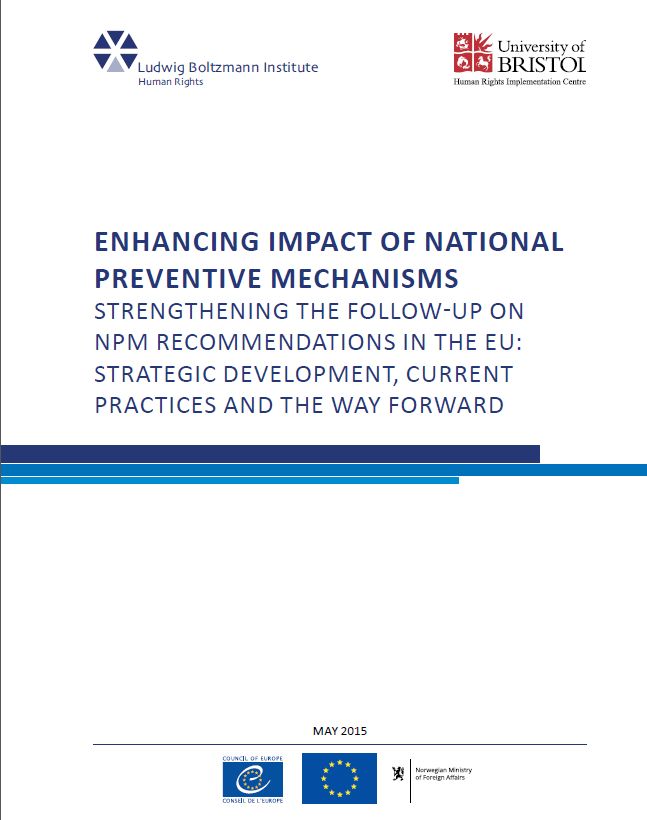Study on enhancing the impact of National Preventive Mechanisms published
The Ludwig Boltzmann Institute of Fundamental and Human Rights (LBI-GMR) in cooperation with the Human Rights Implementation Centre (HRIC) at the University of Bristol has conducted a large-scale research project, financed by the EU and co-financed by the Council of Europe and the Norwegian Ministry of Foreign Affairs, analysing the follow-up procedures of all National Preventive Mechanisms (NPM) in the EU. The research has revealed numerous good practices, yet also a lack of a strategic approach as well as weak coordination and cooperation with international mechanisms and institutions, notably the EU. The study provides the first collection of good practices of NPMs for the follow-up process and proposes ‘building blocks’ for the development of a follow-up strategy that can not only be used by NPMs but by all actors in the field of torture prevention.
Twenty-eight years from today, the UN Convention against Torture came into effect, with the aim to prevent torture and other forms of ill-treatment in the world. Not a decade ago, in 2006, it was complemented by the Optional Protocol to the UN Convention against Torture and other Cruel, Inhuman or Degrading Treatment or Punishment (OPCAT ), which — through its two-level system of preventive monitoring of places of detention— provides state parties with systematic observations and recommendations by the international UN Subcommittee on Prevention of Torture and Other Cruel, Inhuman or Degrading Treatment or Punishment (SPT ) and National Preventive Mechanisms (NPMs) on how to improve conditions of detention and the treatment of persons deprived of their liberty. Of all the regions worldwide, Europe has the highest density of state parties that have established NPMs, with 24 NPMs currently designated to carry out preventive visits to places of detention in the EU.
As more NPMs operate and generate recommendations, their work is coming under greater scrutiny and one of the main challenges faced ‘is ensuring that their recommendations are implemented and lead to real changes in the practice of deprivation of liberty. Impact obviously constitutes the litmus test of the work of monitoring bodies.’ [1] If the visits do not lead to change, there is the risk that this will lead to a ‘monitoring fatigue’, both among the institutions visited and the monitoring mechanism itself.
With its research, the LBI-GMR and HRIC hope to make a valuable contribution supporting states and civil society organisations in their fight against torture and ill-treatment.
The study “Enhancing Impact of National Preventive Mechanisms. Strengthening the follow-up on NPM recommendations in the EU: Strategic development, current practices and the way forward“ can be downloaded below.
[1] APT, Preventing torture – A shared responsibility, Regional Forum on the OPCAT in Latin America (2014) 72.
